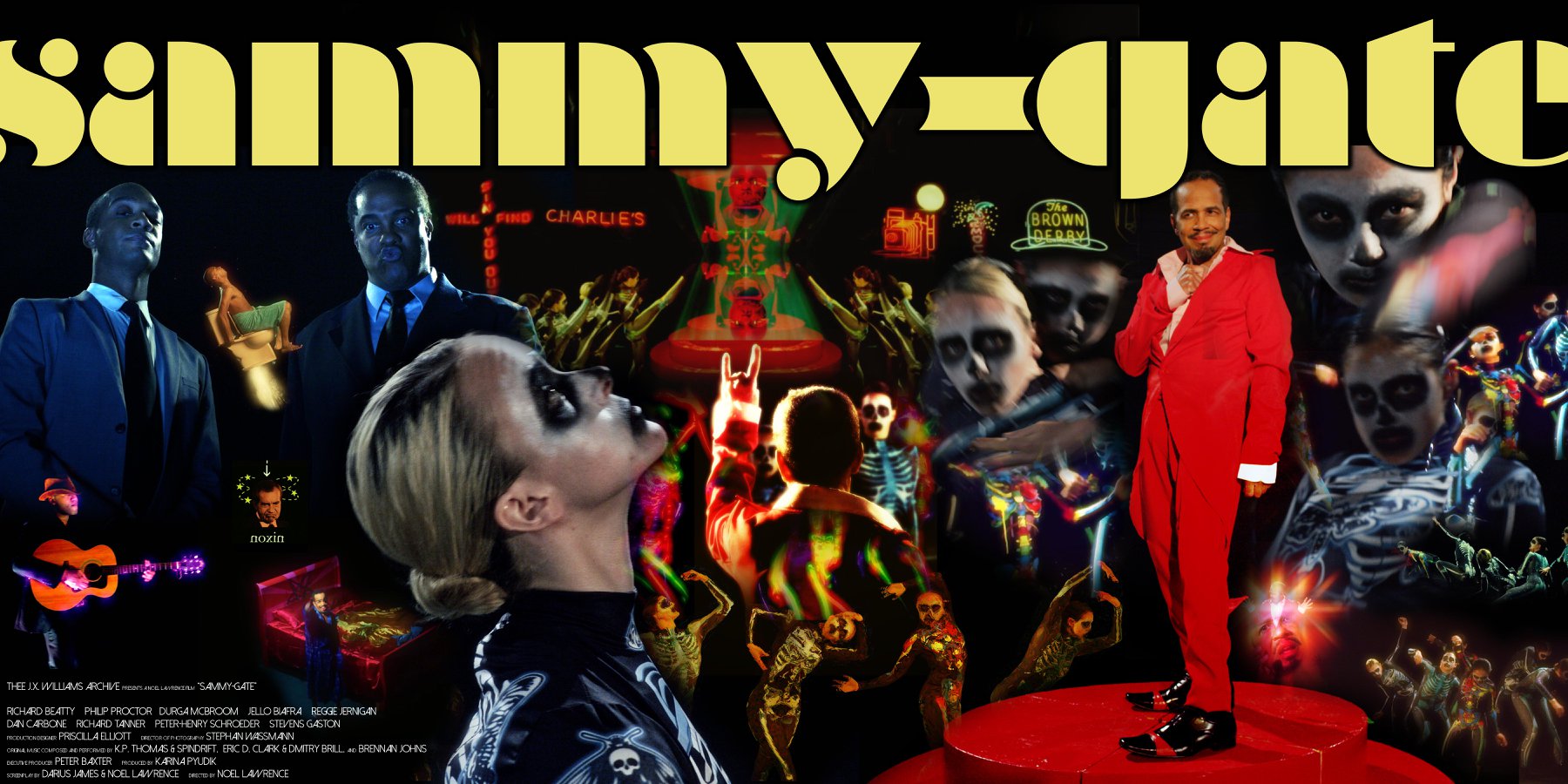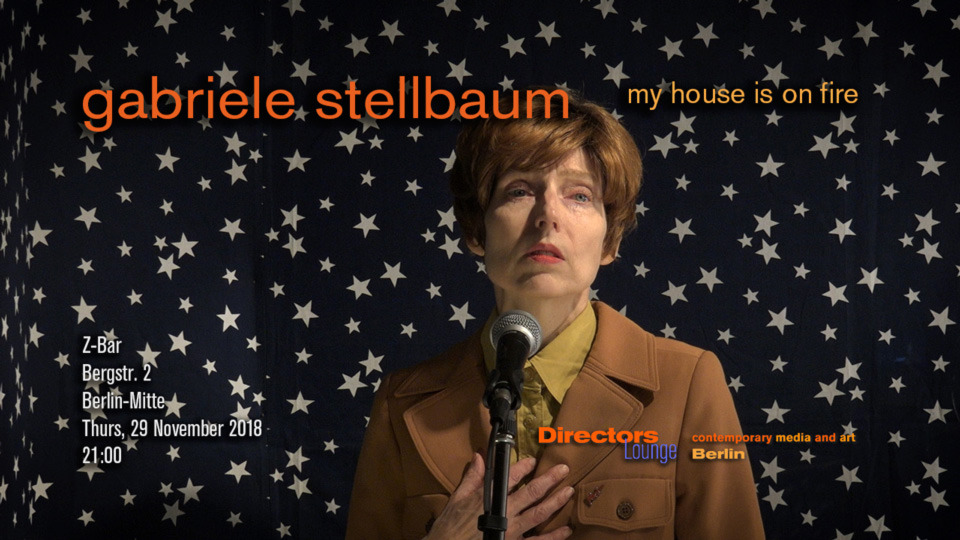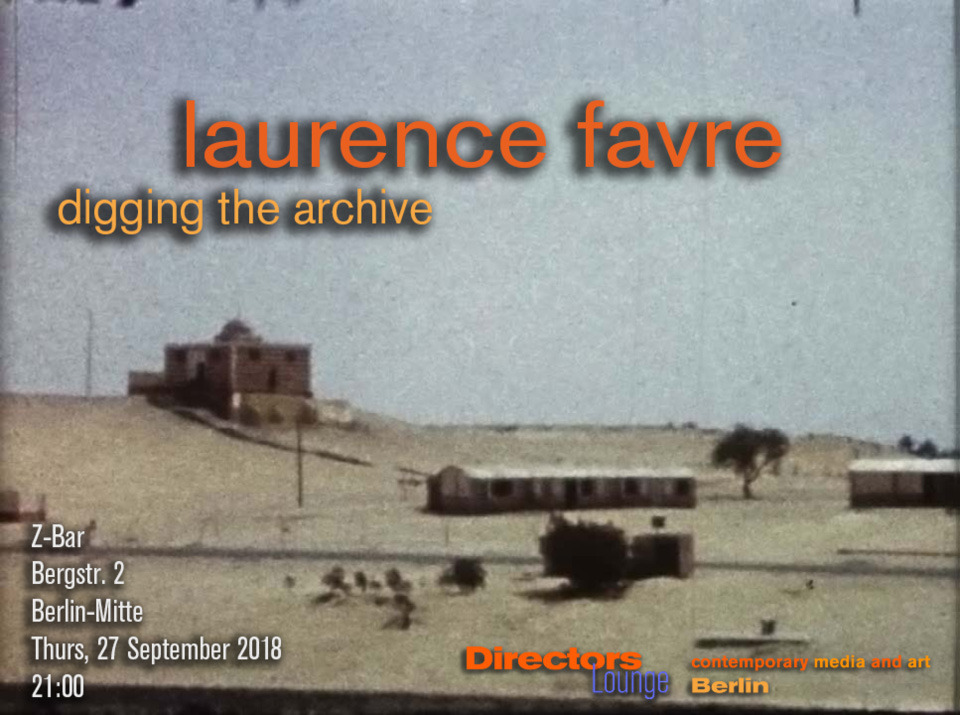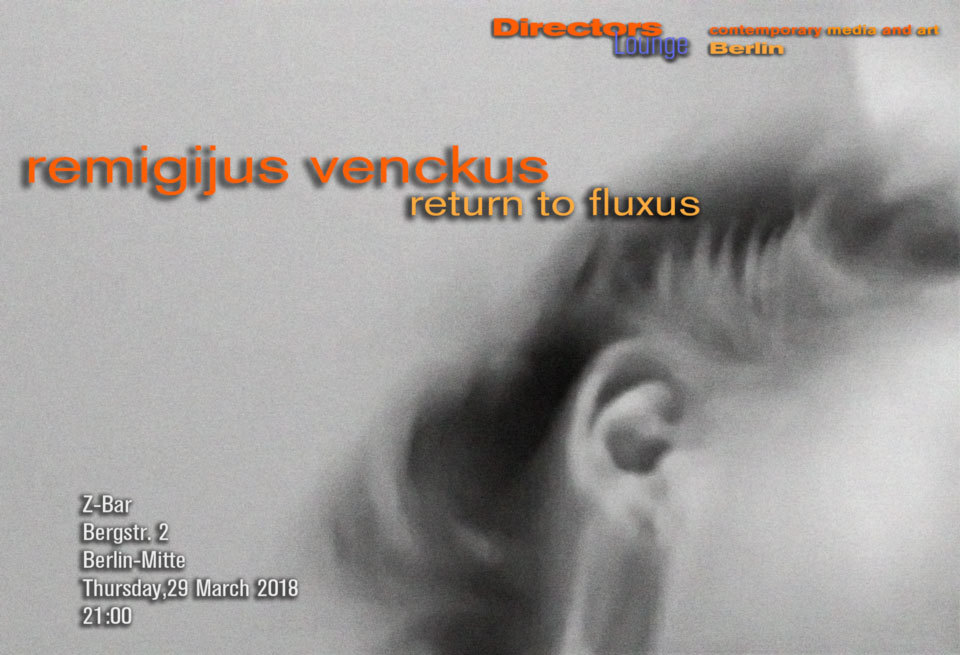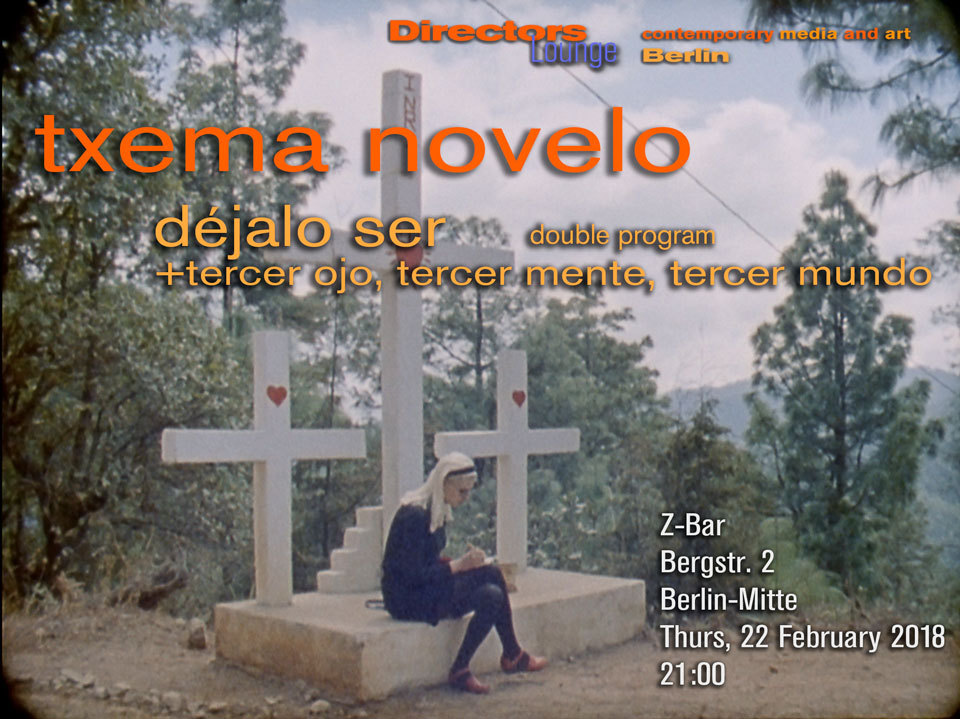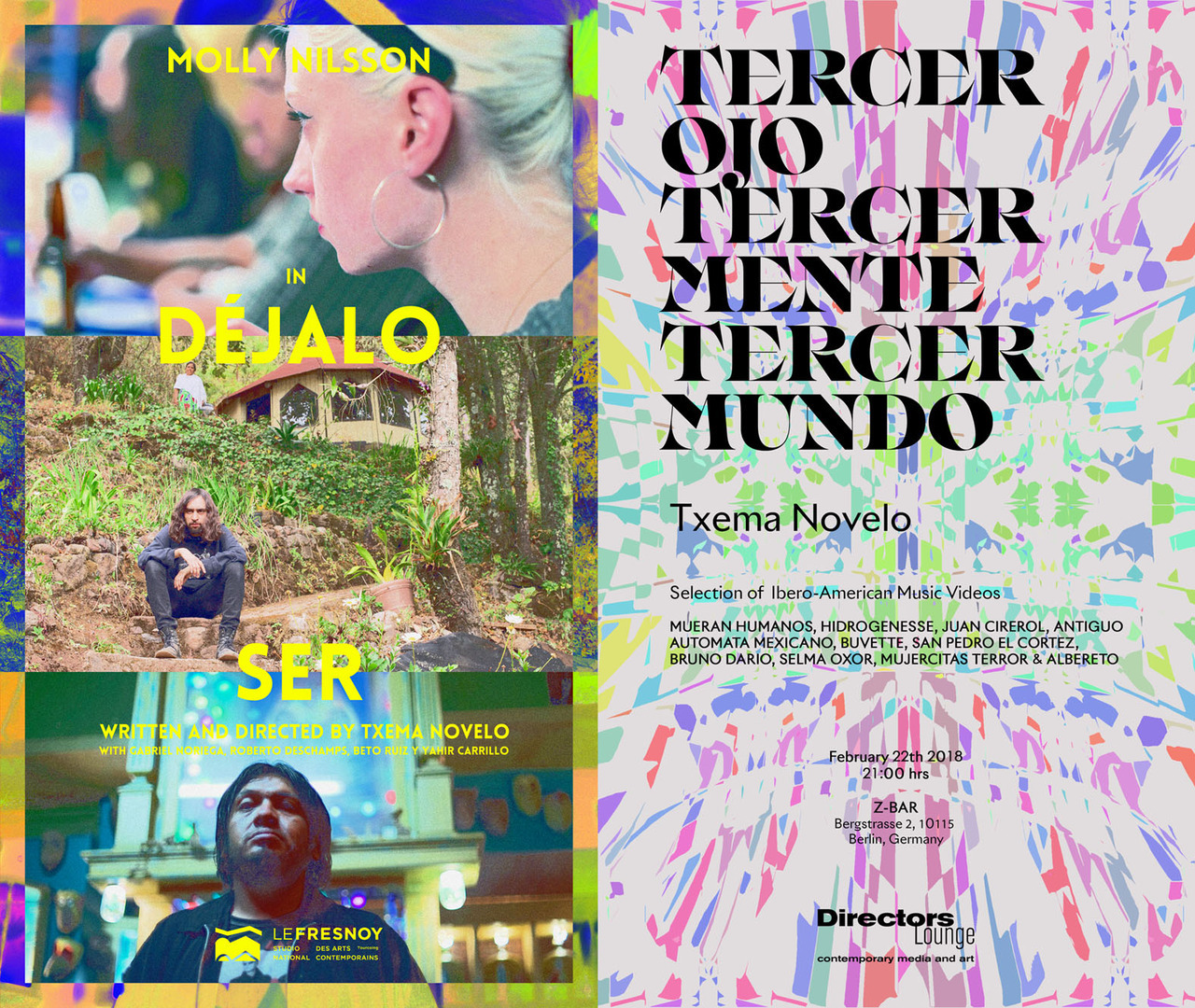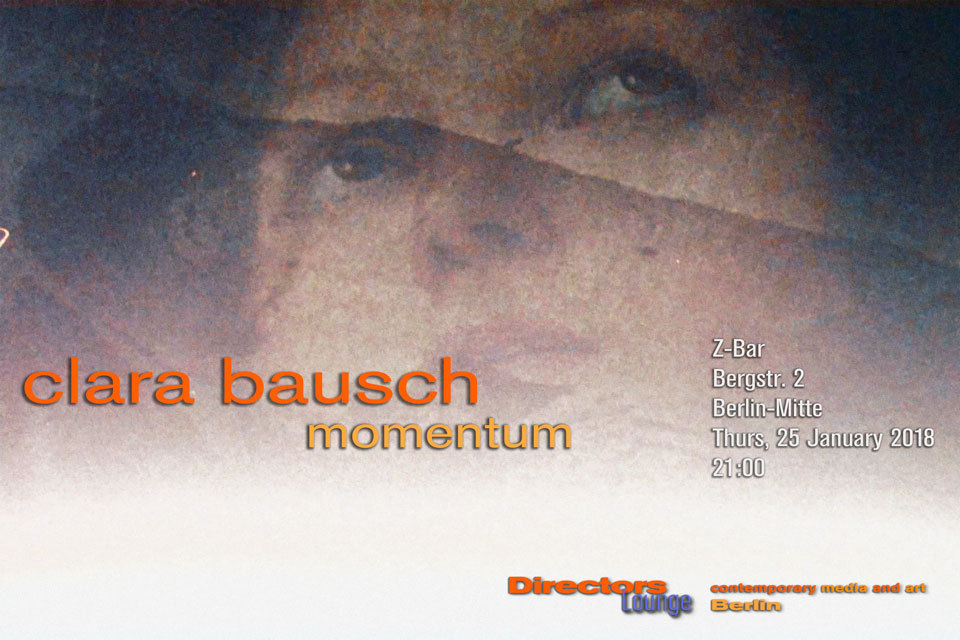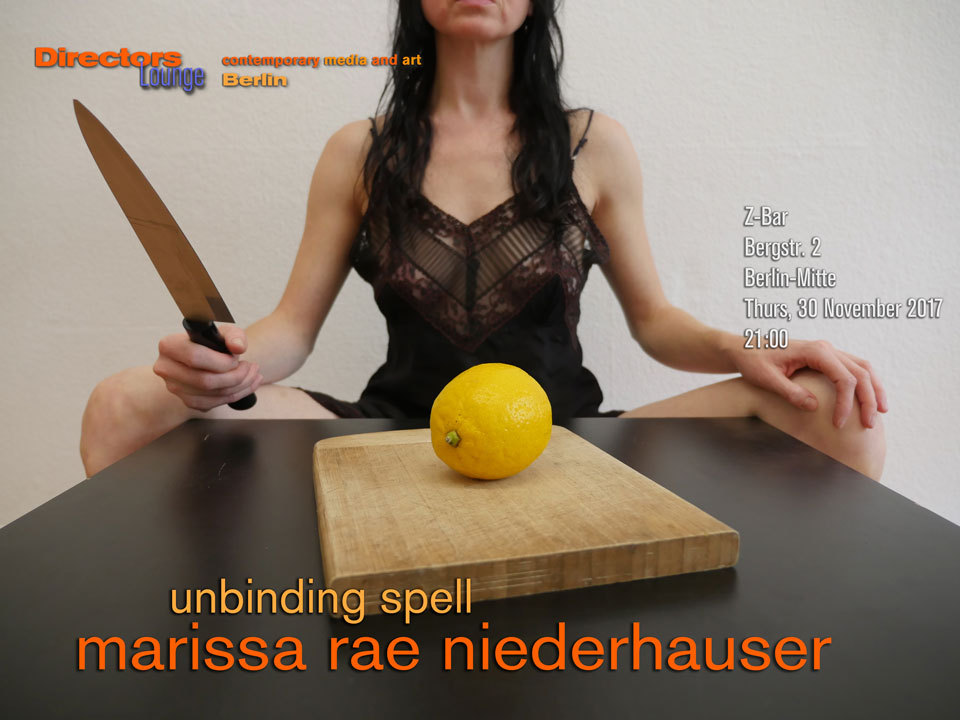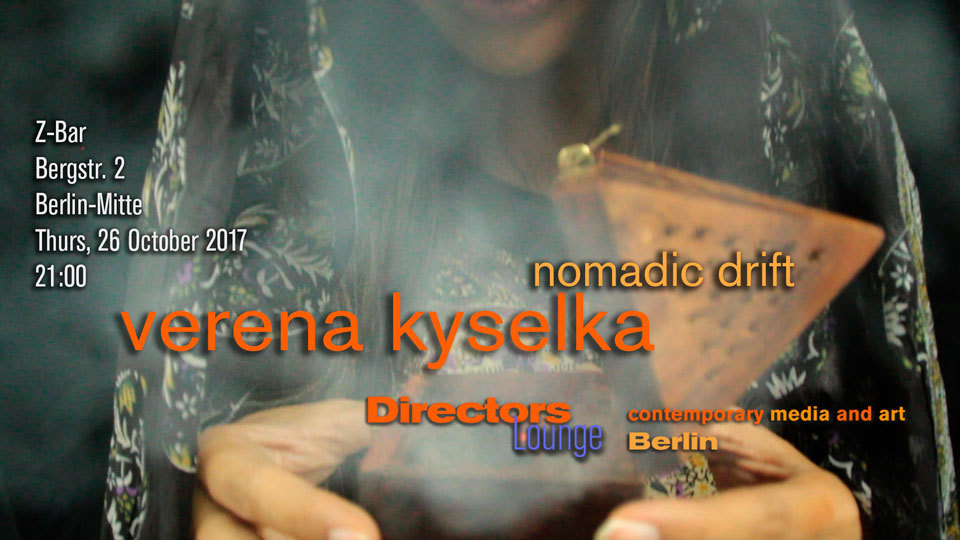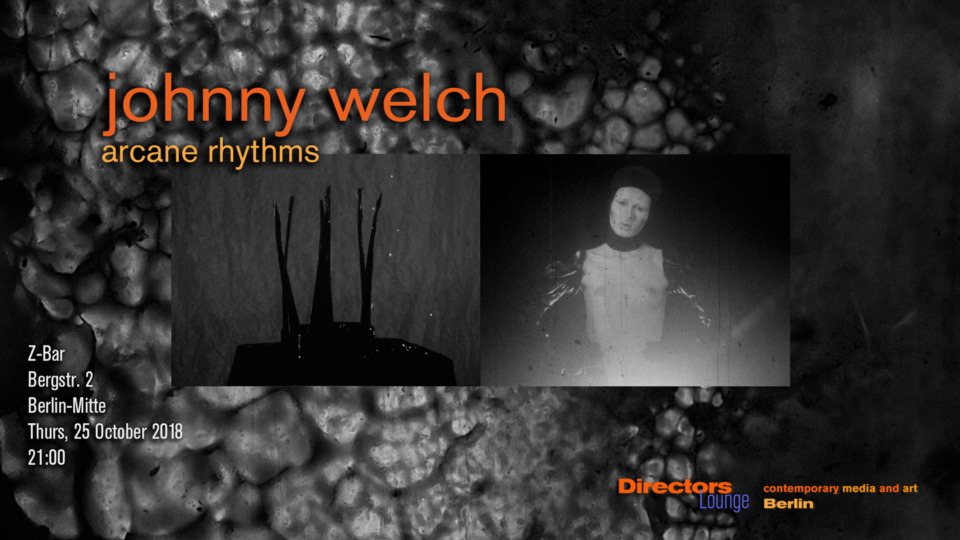
Directors Lounge Screening
Johnny Welch
Arcane Rhythms
Thursday, 25 October 2018
21:00
Z-Bar
Bergstraße 2
10115 Berlin-Mitte
Johnny Welch, filmmaker and photographer from Sydney, Australia lives in Berlin for more than 3 years and is an active member of Labor Berlin. Since coming to Berlin, his work has become more strongly connected with the aesthetic of analog film, with the possibilities of optical printing. Even if edited and projected digitally, analog compositing seems to allow him to create a richer image of high density and depth.
Based on black and white techniques (mostly), the films seem to explore sheer blackness, instead of a black and white aesthetic. Strongly connected with punk music, dark wave and electronic noise, the filmmaker achieves a stunning quality of deep black color with his films. Experimental techniques of emulsion lifts and cracks, combined with black ink, sometimes with an additional tint of red or toning with blue, are combined with dark images of male and female characters. The driving rhythm of the sound track enhances the impression of blackness. Another connection is Aleister Crowley, a controversial figure, and a British occultist from the beginning of the 20th century who inspired a number of important artists and filmmakers like Kenneth Anger and even Fernando Pessoa. Welch’s film Aurum (super8 / digital) from 2018 is a contribution to Crowley’s Liber 777, a book related to occult or cabalistic games with numbers. For Johnny Welch, the occupation and meditation with occult theory may be a search for liberating ideas, or it may even be used as a release from the haunting personal messages once ago sent by peers. (Discharge Working I and II, 2017/18).
For the viewer, the work has an attracting, maybe haunting quality, tinted with a stunning black color. The black sun (in Aurum) for example is an amazing symbol without the need of occult references, and it is a beautiful image interwoven with blackness of painted film material that may stay in the mind of the viewer as a striking image on its own account.
The artist will be present and available for Q&A after the screening. Curated by Klaus W. Eisenlohr
Artist Link:
https://www.johnnywelchfilm.com/
Links:
Directors Lounge http://www.directorslounge.net
Richfilm http://www.richfilm.de/currentUpload/
Z-Bar http://www.z-bar.de

